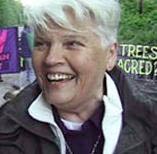
Police complaint system needs overhaul: submission
March 31, 2006 in News
In a sharply worded submission to Josiah Wood, Q.C., the former Court of Appeal justice who is conducting a review of how public complaints against municipal police officers are handled, we have called the current system “an unmitigated failure” and have recommended urgent reform.
At least 22 people have died in police detention or custody in British Columbia in the last four years, yet no police officer has been charged or even disciplined in any of those serious cases. We feel the reason for inaction is that police are permitted to investigate themselves in this province, thereby compromising any further decision-making processes.
The problem is especially acute in Vancouver, which has had 10 police involved deaths since May of 2002. In our submission, we cite our direct experience with corrupt investigations conducted by VPD investigators in the Hyatt, Berg, Bagnell and Stevenson cases in support of our position that the police should no longer be allowed to investigate themselves in cases of serious injury or death.
This view is hardly earth-shattering, yet successive governments refuse to modernize the system. As a result, the families of those who die at the hands of the police feel cheated by the justice system and the complaint process, and come away feeling frustrated, disillusioned and bitter. Our politicians must find the political will to radically change the process, before the public loses faith in the legal system as a whole.
posted by Cameron Ward
Betty Krawczyk's appeal dismissed
March 30, 2006 in Opinion
The British Columbia Court of Appeal has dismissed Betty Krawczyk’s appeal of her conviction for criminal contempt of court arising from her 2003 protest activities. In May of 2003, Ms. Krawczyk sat on a public logging road as a symbolic demonstration of her displeasure with the government’s forestry policies and the industry’s clearcut logging practices.

“Betty K” was arrested for allegedly violating a civil injunction order obtained by Hayes Forest Services Limited and held in jail for several weeks while the Crown and the company tried to decide what, if anything, to do with her.
Ms. Krawczyk, then aged 75, spent a total of four and one half months in jail awaiting trial. Upon “conviction” she was sentenced to a further six months behind bars. Since she was never charged with a criminal offence under the Criminal Code, bail legislation did not apply.
On appeal, we argued that the process used to imprison Ms. Krawczyk for almost a year as punishment for the physical act of sitting on a public road violated her constitutional rights. The Court of Appeal disagreed. A further appeal to the Supreme Court of Canada is being considered.
Read the Court of Appeal decision here:
2006 BCCA 156 Hayes Forest Services Limited v_ Krawczyk
posted by Cameron Ward
Judgment reserved in Berg Appeal
March 22, 2006 in News
The Court of Appeal has reserved judgment in Julie Berg’s appeal, wherein she seeks an order that the decision of a Police Act adjudicator be set aside. Following a lengthy public hearing, which neither Ms. Berg nor her lawyer participated in, the adjudicator decided that “it has not been proved to the degree necessary that the respondent [Cst. Bruce-Thomas of the VPD] committed the disciplinary default of abuse of authority on the person of Jeffrey Michael Berg causing his death.”
Julie Berg’s appeal was opposed by no fewer than five lawyers representing the Police Complaint Commissioner, Cst. Bruce-Thomas and the British Columbia Association of Municipal Chiefs of Police. The appeal was heard by Chief Justice Finch, Madam Justice Rowles and Mr. Justice Mackenzie over two days, March 20 and 21, 2006, and judgment was reserved.
….
Julie Berg’s brother Jeff Berg died on October 24, 2000 after being confronted by Cst. Bruce-Thomas of the Vancouver Police Department. The death was investigated by Vancouver Police Department investigators, including Insp. Rob Rothwell, a car racing teammate of Cst. Bruce-Thomas. On December 9, 2002, Regional Crown Counsel advised the Berg family that “a criminal prosecution is not appropriate” and, on December 19, 2002, Insp. Rothwell advised the family that “no further action is warranted”.
According to public statements made by Dana Urban, Q.C., an experienced former Crown Counsel, “the Vancouver Police Department’s investigation of itself in the best view, best view, could be described as incompetent.” Police Complaint Commissioner Dirk Ryneveld, Q.C., also an experienced former Crown Counsel, later published a report dated June 1, 2005 stating that his office experienced “interference and resistance from some members of the VPD Internal Investigation Section” on this case and that his office was “stymied” by their actions. Mr. Ryneveld concluded that “the real systemic problem appears to be with VPD management and its accountability within the police complaint process.”
In light of these comments, the public may well question why police in the province of British Columbia are still allowed to investigate themselves.

Jeff Berg: 1962-2000
posted by Cameron Ward
CPC Chair initiates complaint in St. Arnaud killing
March 9, 2006 in News
In an unusual move, Paul Kennedy, the Chair of the Commission for Public Complaints Against the RCMP (CPC) has today (March 15th) initiated a complaint into the events related to the shooting death of Kevin St. Arnaud on December 19, 2004 near Vanderhoof, B.C.
The CPC media advisory states that “Mr. Kennedy indicates that he is satisfied that there are reasonable grounds to investigate the circumstances and events surrounding the shooting death of Kevin St. Arnaud, specifically that: Members of the RCMP improperly entered into a situation with Mr. St. Arnaud that resulted in his death [and] a member of the RCMP improperly discharged his firearm in the incident.”
The incident had earlier been investigated by the RCMP itself, which forwarded a Report to Crown Counsel. As discussed below, Crown Counsel declined to charge the RCMP officer who fired three bullets into Mr. St. Arnaud’s chest.
…….
(Note: In a news release dated December 20, 2004, the RCMP stated that they would “ensure that a fully open, public and transparent investigation is conducted” into the homicide of Kevin St. Arnaud. Since the RCMP seems to have paid only lip service to the commitment it made to the public over a year ago, we consider it important to post the following.)

Kevin St. Arnaud
According to a letter we’ve received from Geoffrey Gaul, Director, Legal Services, “the Criminal Justice Branch of the Ministry of Attorney General has decided against laying any charges against Cst. Ryan Sheremetta, the officer involved in the December 2004 shooting death of Kevin St. Arnaud.” According to Mr. Gaul, “we are convinced that the Crown could not prove beyond a reasonable doubt that Cst. Sheremetta is guilty of any offence in relation to the events of 19 December, 2004.”
On December 19, 2004, Cst. Sheremetta of the Vanderhoof RCMP was pursuing Mr. St. Arnaud on foot across a soccer field because Mr. St. Arnaud was suspected to have recently committed a break and enter in a local shopping mall. According to Mr. Gaul’s letter, Mr. St. Arnaud “came to a stop and put his arms in the air” when “Cst. Sheremetta was approximately fifteen to twenty feet from Mr. St. Arnaud.” When Mr. St. Arnaud “advanced” toward the officer, Cst. Sheremetta fired three bullets into Mr. St. Arnaud, killing him. According to Mr. Gaul’s letter, “no weapons were found on Mr. St. Arnaud.” There is no suggestion in the letter that Mr. St. Arnaud had anything in his possession that could be mistaken for a weapon: no TV remote, no portable CD player…just some plastic pill containers. The letter does not explain how plastic pill containers can instil a fear of imminent death or grievous bodily harm in a trained police officer.
A few things should be apparent to even the most casual observer. First, if the shooter in this case had not been wearing a police uniform, he would have been charged immediately with murder or manslaughter. It would not have taken Crown Counsel fourteen months to reach a decision on whether or not to lay charges. Second, if his shooter’s explanation was that he fired on an unarmed man in an open field in self-defence, the Crown would have charged him and required him to try to establish that defence to the satisfaction of a judge (or judge and jury) in a court of law.
However, in this case the assailant was wearing an RCMP uniform, which changes everything. In accordance with standard practice in this province (unlike say, Ontario, where the police are not allowed to investigate themselves) Cst. Sheremetta’s RCMP colleagues investigated the homicide and delivered their final investigative report to the offices of Crown Counsel, the same prosecutors the RCMP work with on a daily basis on their criminal cases. To make matters even more unjust for Mr. St. Arnaud’s loved ones, although a coroner’s inquest is mandatory whenever someone dies at the hands of police, the Chief Coroner (former RCMP Chief Superintendent Terry Smith) has an unwritten, informal policy that no inquest can be held and no documents can be disclosed to the victim’s family until all criminal investigations have been completed. The family has still received no documents, not even the autopsy report, and no inquest date has been set.
These arrangements between the RCMP, the Crown and the Chief Coroner ensure that any police officer in the Province of British Columbia who kills a citizen will be shielded from prosecution by the criminal justice system and ensures that the victim’s family members and loved ones will be kept completely in the dark for months, perhaps years, while layers of whitewash are applied by the authorities.
This state of affairs is anachronistic, unjust, cruel and utterly disgraceful and will ultimately bring the administration of justice in BC into disrepute. It certainly does nothing to enhance piublic confidence in the criminal justice system. It is high time that there be a completely independent investigative process to handle serious police incidents like the shooting death of Kevin St. Arnaud.
As a wiser person than me once said, “justice must not only be done, it must manifestly be seen to be done.”
posted by Cameron Ward
Canada Line (RAV) misses target, again
March 1, 2006 in News
The company overseeing British Columbia’s largest P3 transportation project, the $1.9 billion Canada Line (formerly RAV), has once again missed a target date for public disclosure of critical information related to the project’s finances.
Canada Line Rapid Transit Inc., a subsidiary of TransLink, originally promised that the Final Project Report (Procurement Phase), together with the Concession Agreement and Auditor General’s report on the deal, would be disclosed to the public by the end of 2005. On January 3, 2006, it announced that the new target date for the release of these documents would be the end of January. When January 31st came and went, the new deadline was the end of February. On February 15, 2006, Chair Larry Bell and CEO Jane Bird assured the public that the reports, including a copy of the Concession Agreement, would be available “soon”.
As of today, March 1, 2006, these critical documents are still being withheld from the public, which is on the hook for a huge chunk of the project’s multi-billion dollar price tag.
What’s going on here? Why are taxpayers being kept in the dark? Can the public have any confidence that the 17km transit line will be delivered on time and on budget when management has missed three successive target dates for delivering documents?
The spokesman for the Canada Line is Alan Dever: 604-484-7287.







 Follow this site using RSS
Follow this site using RSS

